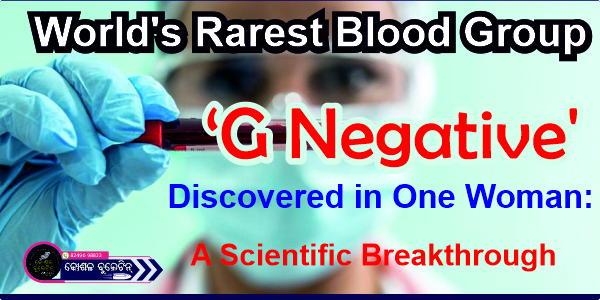In a groundbreaking revelation that has astonished the global medical community, scientists have discovered a new and exceptionally rare blood group called “G Negative” or “Gwada Negative.” What makes this discovery even more extraordinary is that this unique blood type has been identified in just one woman in the entire world, making her case a true medical marvel.
The discovery was made in Guadeloupe, a French overseas territory in the Caribbean. During routine medical tests, doctors noticed that the woman’s blood did not match any of the existing 47 officially recognized human blood group systems. Further genetic sequencing and years of analysis confirmed that her blood carried properties previously undocumented in medical literature, leading to the identification of what may now be recognized as the 48th human blood group.
Researchers are calling this a landmark moment in transfusion science. Blood compatibility is critical in surgeries and emergencies, and individuals with extremely rare blood types, like G Negative, face life-threatening risks if compatible donors are not found. The woman in question is reported to be in good health, but any future medical treatments involving blood transfusions will need exceptional caution and preparation.
However, some experts have suggested that this new “G Negative” group could be closely related to or even identical to a rare blood type already known to science as AnWj-negative, which was first identified in the 1970s. This type is part of what is now called the MAL blood group system and was only recently decoded at the genetic level after more than 15 years of research. Despite the similarities, the discovery of G Negative brings renewed focus on these rare phenotypes and the gaps in global blood databases.
Whether a brand-new discovery or a rediscovery under a new name, G Negative has drawn international attention to the critical importance of studying blood group diversity. Scientists are hopeful that this finding will not only help improve transfusion safety but also pave the way for better care of patients with rare blood conditions in the years to come.




